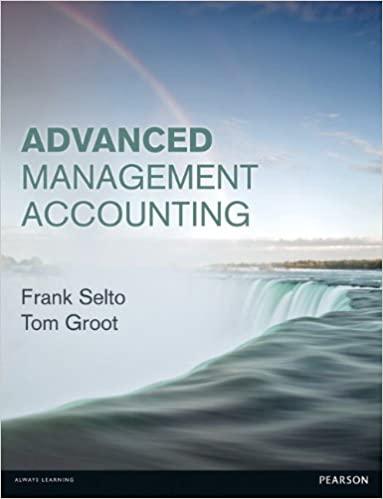Question
XYZ Manufacturing, a prominent player in the automotive industry, is contemplating a shift in its cost accounting methodology from variable costing to absorption costing. The
XYZ Manufacturing, a prominent player in the automotive industry, is contemplating a shift in its cost accounting methodology from variable costing to absorption costing. The decision to adopt absorption costing raises intricate questions regarding its impact on financial reporting, product pricing, and overall business strategy. The company is currently using variable costing to evaluate its performance and make managerial decisions, but it recognizes that absorption costing might provide a more comprehensive view of the cost structure.
In light of this potential transition, the management team is seeking a detailed analysis of absorption costing, considering both its advantages and challenges. They are particularly interested in understanding how absorption costing handles fixed manufacturing overhead costs and how these costs are allocated to products. Additionally, the management is keen on exploring the implications for financial statements, especially with regard to inventory valuation, cost of goods sold, and net income.
Moreover, the management team is grappling with the potential impact of absorption costing on product pricing decisions. They are curious about how absorption costing, with its inclusion of fixed manufacturing overhead costs, might influence the perceived profitability of different product lines. In the current market, where competition is intense and pricing decisions are crucial, the management is wary of any adverse effects on the company's competitiveness.
The transition to absorption costing also brings forth questions about performance evaluation and managerial decision-making. The management team wants to understand how absorption costing may affect key performance metrics, such as gross margin and operating income, and how these changes might influence strategic decisions related to production levels, product discontinuation, and resource allocation.
Considering these complexities, the management of XYZ Manufacturing seeks a comprehensive analysis and guidance on the practical implications of transitioning from variable costing to absorption costing. The company is interested in recommendations on how to smoothly execute this transition, potential challenges to anticipate, and strategies to mitigate any negative repercussions on financial performance and competitiveness in the automotive market.
In light of the nuanced nature of absorption costing, the management team is also keen on understanding how external stakeholders, such as investors and creditors, might perceive the change and how it could impact financial ratios and overall financial health.
Provide a detailed response to XYZ Manufacturing's inquiries, addressing the advantages, challenges, and strategic considerations associated with the transition from variable costing to absorption costing, and offer insights into potential adjustments needed in financial reporting and decision-making processes.
Step by Step Solution
There are 3 Steps involved in it
Step: 1

Get Instant Access to Expert-Tailored Solutions
See step-by-step solutions with expert insights and AI powered tools for academic success
Step: 2

Step: 3

Ace Your Homework with AI
Get the answers you need in no time with our AI-driven, step-by-step assistance
Get Started


